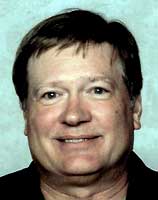

Hal Peterson has worked in the San Francisco Bay area for the past fifty years as a composer, arranger, performer, conductor, and educator in music and computers. He received his undergraduate training in music theory and instrumental performance at San Jose State University and went on to Stanford University with the assistance of a Ford Foundation Fellowship, earning a masters degree (1971) and doctorate in music theory and composition in 1973. A computer notation specialist, he completed post-doctoral work with Leland Smith at the Center for Computer Research in Music and Acoustics. His compositions range from serious to popular in content and include Symphony for Synthesizer and Orchestra, Classical Overture, Fantasia Tarantella, prologue, The 12 Gifts of Christmas, Reflections, and Chesapeake Street Beat. Over his career he has completed hundreds of arrangements for bands, orchestra, choirs, and jazz ensembles. Two published arrangements are Dances at Threave by the late Scottish composer John Maxwell Geddes and Carmen Suite 3 from the Bizet opera for symphonic band.
Dr. Peterson worked for the San Jose Unified School District for 24 years as a specialist in music and computers and instrumental music instructor. At San Jose High Academy he developed an internationally accredited music curriculum in electronic music with the assistance of grants from Apple Computer, the Packard Foundation, the California Arts Council, and a variety of hardware and software companies. In 1991, The International Baccalaureate Board of Examinations in Cardiff, Wales, UK approved this curriculum as a School-Based Syllabus in Electronic Music, the first secondary music curriculum to ever receive this distinction. At Leland High School, Peterson taught courses in electronic music, AP theory, music appreciation, and multimedia production at Leland High School in a fully networked Digital Media Lab which he designed. These courses were articulated and received concurrent credit from the Metro Career Technical Education District in San Jose and college credit at the West Valley-Mission Community College District in Saratoga. He has published two books on music technology: The School MIDI Lab: Teaching Music Through Technology, and The IB Curriculum in Electronic Music at San Jose High Academy. He also taught courses in music at Stanford University (1976-78), DeAnza College (1975-79), and West Valley College (1999 and 2005).
Hal served as the Music and Technology representative on the Board of Directors for the Bay Section of the California Music Educators Association for thirteen years, organizing and teaching music technology training sessions and working with music hardware and software companies. He created and worked as the first webmaster for their web site. As a consultant on technology in the schools, Dr. Peterson made numerous presentations on technology topics at local, state, and national educational conferences.
Professional performance experience included work as the conductor and music director for the Villages Concert Band (2002-2015), principal horn, arranger, and pianist/synthesist for San Jose Civic Light Opera (1973-91), third horn and assistant principal horn with the Monterey County Symphony (1976-85), two seasons with the San Jose Symphony (1967-68 and 1973-73), along with much freelance work as principal horn with local choral societies, shows, church choirs, and work as the pianist for the jazz/rock band Flash (1967-74). Since retiring from teaching, Peterson has continued to work for Leland High School as the collaborative pianist and staff arranger for the music department.
“Learning and analyzing music to gain new insights is a never ending endeavor. I started this music blog to write down and share my thoughts and analysis of music literature and its performance practice from my years of experience in all the above occupations, and also as an informed concert goer.”